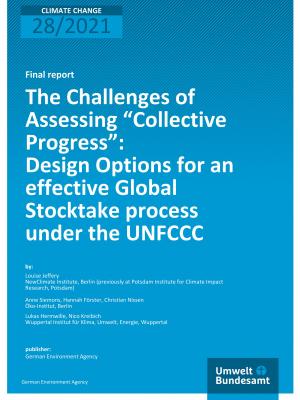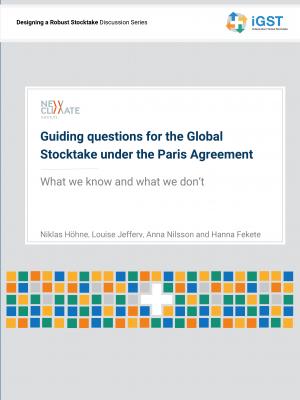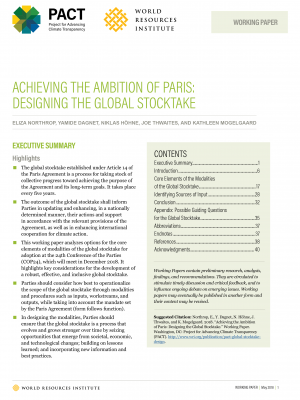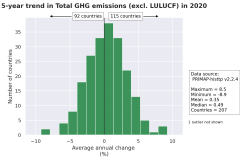This summary report creates a framework to evaluate if a GST is successful and formulates recommendations for the design of the GST process. Please note that this is the executive summary of the full report that was published in advance to already feed into the negotiations at COP25. The main document will be provided subsequently.
Key findings:
The Paris Agreement combines collective goals with individual countries’ contributions. This hybrid approach does not guarantee that the individual contributions add up to what is required to meet the collective goals. The Paris Agreement therefore established the Global Stocktake. Its task is to “assess collective progress” towards achieving the long-term goals of the agreement as of 2023 and every five years thereafter. Corresponding to this role, this paper addresses three questions:
- What should an effective Global Stocktake look like?
- What information and data are needed?
- Is it possible to execute an effective Global Stocktake within the mandate of the Paris Agreement?
Considering the availability of information and procedural constraints we assess the potential and limits for the GST to deliver on fulfilling the four functions of an effective global stocktake outlined above. The UNFCCC GST process could maximise its effectiveness by:
- Including an explicit public appraisal of the inputs
- Applying the performance distributions approach developed in this project
- Including de- tailed discussion of key sectoral systems in the structured expert dialogues
- Calling upon the IPCC to assess the available research specifically with a view to identifying benchmarks
The official GST should be complemented and supported by independent activities from civil society and the academic community.







